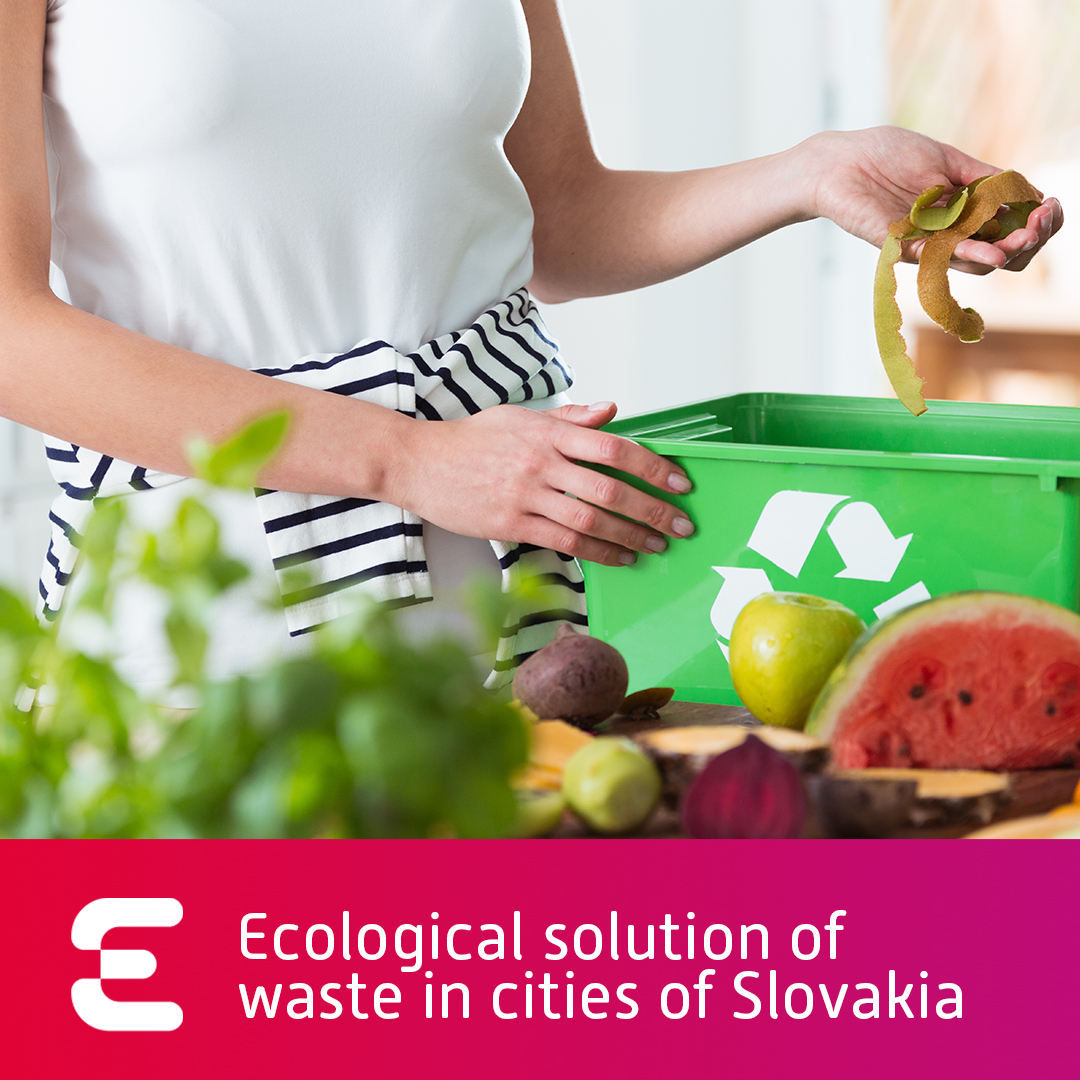Ecological solution of waste in cities of Slovakia
Waste sorting and recycling are mandatory in Slovakia, but they can also be smart. Waste sorting protects the environment and conserves natural resources. Getting involved in waste sorting can be literally attractive. The simpler the system, the more it inspires the residents themselves to try to sort.
New biowaste sorting obligations
Today, Slovakia recycles only about 40% of municipal waste, but this volume should increase very quickly to at least 50%. This follows from the commitments vis-à-vis to the European Union. The way is efficient sorting of biowaste, which makes up about half of the mixed municipal waste. The amendment to the law, published by the envirorezort on May 7, 2020, incorporates the new European rules into Slovak legislation. The new rules concern the sorting of BIO waste.
In the area of kitchen waste, the amendment removes three of the four types of exceptions. The first is that if cities have incinerators, they do not have to sort kitchen waste. However, this is only the case in Bratislava and Košice. From next year, however, these cities will also have to sort.
From 2023, the amendment also removes the exemption for cities and municipalities, for which the sorting of kitchen waste is technically difficult. They will have to find an effective solution.
The most frequently used exception, the economic unbearability of sorting kitchen waste, has been abolished by law since 2021. However, exceptions to sorting remain for residents who have composters in households. The way for local governments, therefore, remains to find the most efficient options for waste sorting, including the collection of biodegradable kitchen waste (BMW) and edible oils and fats (EOF).
More and more municipalities are streamlining waste sorting
In Slovakia, the impact of legislation is emerging, the local government is preparing new technologies for waste separation and processing. More recycled waste means less waste that ends up in the warehouse. The recycling rate of municipal waste in Slovakia is one of the lowest in the EU.
Up to two-thirds of municipal waste is landfilled. About 40% of biodegradable waste and 40% of recyclable components such as plastics, paper, glass, and metal travel here unnecessarily.
Residents often do not have recycling waste collection containers available or there is a lack of support for home or community composting. This can change the use of ESONA’s SMART system. A system that also enables the registration of the collection of biodegradable kitchen waste and edible oils and fats. This is done by the employees of the waste collection company by scanning QR codes with a unique mobile application. Everything is simple, smart, saves costs, and can motivate the residents to recycle.
Efficiency instead of flat fees
In Slovakia, usually only paper, plastics, metals, and glass are still recycled, and the rest is a municipal unsorted waste. In the conventional waste collection, municipalities are unable to identify the people who approach sorting responsibly. They use flat-rate waste fees, where everyone pays the same no matter how much they recycle and how much-mixed waste they produce. These municipalities do not take into account the real number of exports made. The change, on the other hand, is the use of RFID contactless technology.
It works on the principle of electromagnetic waves and enables the unambiguous identification of garbage containers during their dumping. The waste charge can therefore be calculated precisely with regard to the waste products of a particular household. The more a citizen sorts out, the less he will pay in fees for mixed municipal waste.
Municipalities are increasing
Legislation requires local governments to become increasingly interested in waste policy solutions. After Senec and Bernolákovo, for example, other municipalities such as Hrubý Šúr, Kráľová pri Senci, Veľký Grob, Pusté Úľany, Jelka, Most pri Bratislave, Hrubá Borša, Boldog, Blatné and Veľký Biel also decided on a comprehensive solution and order in waste.
ESONA’s smart solution will enable control of the waste collection process in every municipality or city and help to significantly reduce the costs of waste collection and disposal. The system provides detailed information on all waste containers in the village. In the application, you will find information about waste export, fees, and costs. The data is available via PC and mobile devices and access to the data in the system is available at various levels to local government employees, exporters, and citizens.

